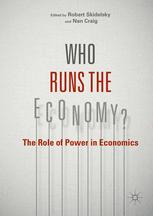

Most ebook files are in PDF format, so you can easily read them using various software such as Foxit Reader or directly on the Google Chrome browser.
Some ebook files are released by publishers in other formats such as .awz, .mobi, .epub, .fb2, etc. You may need to install specific software to read these formats on mobile/PC, such as Calibre.
Please read the tutorial at this link: https://ebookbell.com/faq
We offer FREE conversion to the popular formats you request; however, this may take some time. Therefore, right after payment, please email us, and we will try to provide the service as quickly as possible.
For some exceptional file formats or broken links (if any), please refrain from opening any disputes. Instead, email us first, and we will try to assist within a maximum of 6 hours.
EbookBell Team

4.0
26 reviewsSince the financial crisis of 2008 and the following Great Recession, there has been surprisingly little change in the systems of ideas, institutions and policies which preceded the crash and helped bring it about. 'Mainstream' economics carries on much as it did before. Despite much discussion of what went wrong, very little has substantially changed. Perhaps the answer has something to do with power; a subject on which economics is unusually quiet. Whilst economics may be able to discuss bargaining power and market power, it fails to explore the reciprocal connections between economic ideas and politics: the political power of economic ideas on the one side, and the influence of power structures on economic thought on the other. This book explores how the supposedly neutral discipline of economics does not simply describe human behaviour, but in fact shapes it.